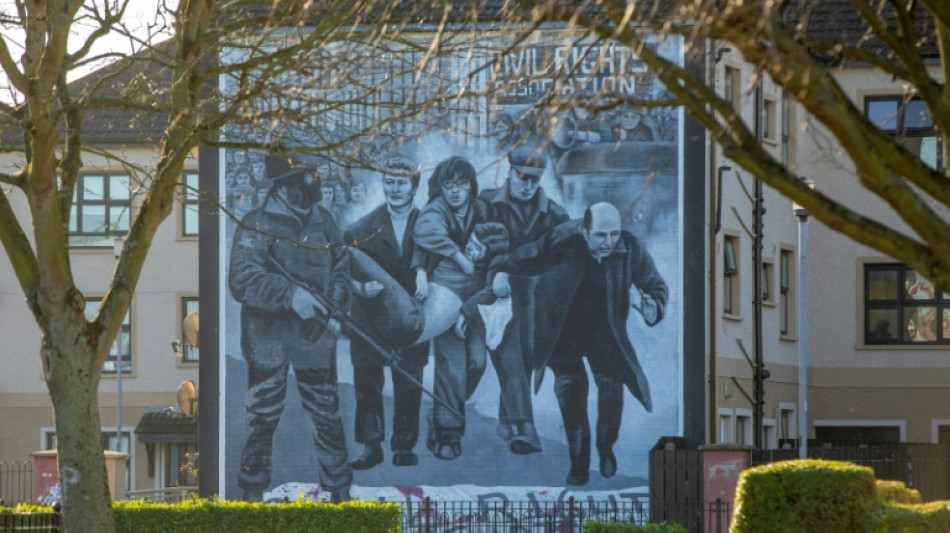
-
 Von Allmen wins men's Olympic downhill gold, first of Games
Von Allmen wins men's Olympic downhill gold, first of Games
-
First medals up for grabs at Winter Olympics

-
 Afghanistan captain Khan harbours dream of playing in Kabul
Afghanistan captain Khan harbours dream of playing in Kabul
-
Lindsey Vonn completes second Winter Olympics downhill training run

-
 Freeski star Gu survives major scare in Olympic slopestyle
Freeski star Gu survives major scare in Olympic slopestyle
-
Iran FM looks to more nuclear talks, but warns US

-
 Hetmyer's six-hitting steers West Indies to 182-5 against Scotland
Hetmyer's six-hitting steers West Indies to 182-5 against Scotland
-
After boos for Vance, IOC says it hopes for 'fair play'

-
 Thousands gather as Pakistan buries victims of mosque suicide attack
Thousands gather as Pakistan buries victims of mosque suicide attack
-
Lindsey Vonn completes second downhill training session

-
 US pressing Ukraine and Russia to end war by June, Zelensky says
US pressing Ukraine and Russia to end war by June, Zelensky says
-
Faheem blitz sees Pakistan avoid Netherlands shock at T20 World Cup

-
 Takaichi talks tough on immigration on eve of vote
Takaichi talks tough on immigration on eve of vote
-
England's Salt passed fit for T20 World Cup opener

-
 Spain, Portugal brace for fresh storm after flood deaths
Spain, Portugal brace for fresh storm after flood deaths
-
Pakistan bowl out Netherlands for 147 in T20 World Cup opener

-
 Pushed to margins, women vanish from Bangladesh's political arena
Pushed to margins, women vanish from Bangladesh's political arena
-
Crypto firm accidentally sends $40 bn in bitcoin to users

-
 Pistons end Knicks' NBA winning streak, Celtics edge Heat
Pistons end Knicks' NBA winning streak, Celtics edge Heat
-
Funerals for victims of suicide blast at Islamabad mosque that killed at least 31

-
 A tale of two villages: Cambodians lament Thailand's border gains
A tale of two villages: Cambodians lament Thailand's border gains
-
Police identify suspect in disappearance of Australian boy

-
 Cuba adopts urgent measures to address energy crisis: minister
Cuba adopts urgent measures to address energy crisis: minister
-
Not-so-American football: the Super Bowl's overseas stars

-
 Trump says US talks with Iran 'very good,' more negotiations expected
Trump says US talks with Iran 'very good,' more negotiations expected
-
Trump administration re-approves twice-banned pesticide

-
 Hisatsune leads Matsuyama at Phoenix Open as Scheffler makes cut
Hisatsune leads Matsuyama at Phoenix Open as Scheffler makes cut
-
Beyond the QBs: 5 Super Bowl players to watch

-
 Grass v artificial turf: Super Bowl players speak out
Grass v artificial turf: Super Bowl players speak out
-
Police warn Sydney protesters ahead of Israeli president's visit

-
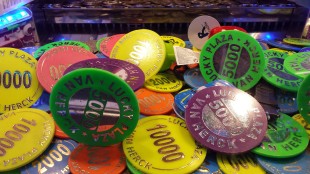 Simi Khanna Launches Simi Beauty SK: A Natural Skincare Line Blending Luxury, Wellness, and Purpose
Simi Khanna Launches Simi Beauty SK: A Natural Skincare Line Blending Luxury, Wellness, and Purpose
-
Best Gold IRA Companies February 2026 Announced (Top Gold-backed IRA Companies Revealed)

-
 Bolivia wants closer US ties, without alienating China: minister
Bolivia wants closer US ties, without alienating China: minister
-
Ex-MLB outfielder Puig guilty in federal sports betting case

-
 Milan-Cortina Winter Olympics open with dazzling ceremony
Milan-Cortina Winter Olympics open with dazzling ceremony
-
China overturns death sentence for Canadian in drug case

-
 Trump reinstates commercial fishing in protected Atlantic waters
Trump reinstates commercial fishing in protected Atlantic waters
-
Man Utd can't rush manager choice: Carrick

-
 Leeds boost survival bid with win over relegation rivals Forest
Leeds boost survival bid with win over relegation rivals Forest
-
Stars, Clydesdales and an AI beef jostle for Super Bowl ad glory

-
 Dow surges above 50,000 for first time as US stocks regain mojo
Dow surges above 50,000 for first time as US stocks regain mojo
-
Freeski star Gu says injuries hit confidence as she targets Olympic treble

-
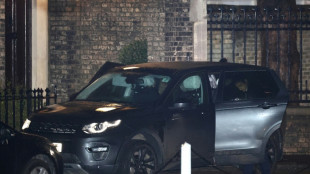 UK police search properties in Mandelson probe
UK police search properties in Mandelson probe
-
Bompastor extends contract as Chelsea Women's boss despite slump
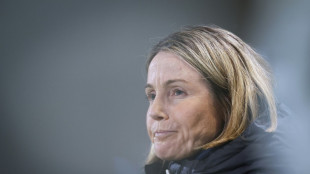
-
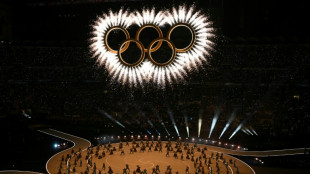 Milan-Cortina Winter Olympics open with glittering ceremony
Milan-Cortina Winter Olympics open with glittering ceremony
-
A French yoga teacher's 'hell' in a Venezuelan jail
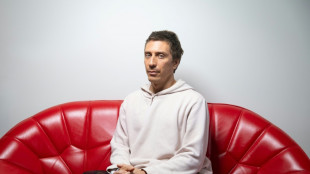
-
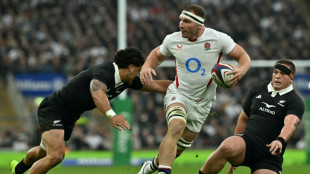 England's Underhill taking nothing for granted against Wales
England's Underhill taking nothing for granted against Wales
-
Fans cheer for absent Ronaldo as Saudi row deepens
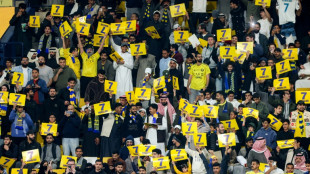
-
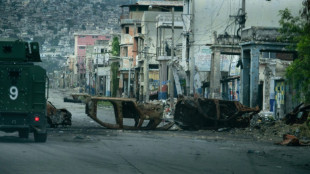 Violence-ridden Haiti in limbo as transitional council wraps up
Violence-ridden Haiti in limbo as transitional council wraps up
-
Hundreds protest in Milan ahead of Winter Olympics
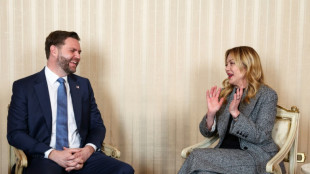

'Bloody Sunday': 10 minutes of killing that shook N.Ireland
"Bloody Sunday" was a turning point in three decades of violence in Northern Ireland known as the "Troubles".
On Sunday January 30, 1972, British paratroopers shot dead 13 Catholic demonstrators in the province's second city, Londonderry.
Here is how events unfolded:
- Peaceful march -
The Northern Ireland Civil Rights Association (NICRA) organised an anti-internment march to take place that day in the city Catholics call Derry.
They were angry at the increasing internment without trial of Catholic nationalists since the previous August.
The march was illegal. Northern Ireland's Protestant authorities had declared a year-long ban on all marches amid spiralling unrest since civil rights protesters began demanding an end to voting, housing and job discrimination against the minority Catholic community in 1968.
Nevertheless, at least 15,000 people joined the march, which set off in a carnival-like mood from the Creggan Estate, a few kilometres from the city centre, through the Catholic Bogside district to Guildhall Square.
Crack troops from the British 1st Battalion Parachute Regiment, drafted in that day, were waiting at barricades to stop the march reaching the city centre.
- Confrontation -
A section of the crowd turned into William Street and youths began throwing stones at a British army barricade.
Troops were ordered to begin arrests and armoured cars drove into the crowd.
Around 4:10 pm soldiers started firing.
Within about 10 minutes 13 people were dead and a further 15 injured. Six of the dead were aged 17.
- 'Whitewash' -
The troops claimed to have come under sustained gunfire as well as attacks with nail bombs. They said they aimed away from the demonstrators.
Their claims, largely accepted in the official report by senior English judge John Widgery, published later that year, were not backed up by independent accounts.
No soldiers were injured in the operation and no guns or bombs recovered.
The victims' families derided the report as a "whitewash".
- Explosion in violence -
The killings proved a boon to the nascent Provisional Irish Republican Army, fighting for Northern Ireland's reunification with Ireland, whose ranks swelled with new recruits.
On February 2, an angry crowd set fire to the British embassy in Dublin.
On March 24, London suspended the Protestant-dominated Northern Ireland provincial government, leading to decades of direct rule from the British capital.
- Apology -
In June 2010 a new report published after a 12-year investigation said British troops fired first and had given misleading accounts of what happened.
The report by senior British judge Mark Saville concluded that none of the victims was armed, soldiers gave no warnings before opening fire and the shootings were a "catastrophe" for Northern Ireland and led to increased violence.
Following the report then British prime minister David Cameron apologised for the killings, saying: "There is no doubt... what happened on 'Bloody Sunday' was both unjustified and unjustifiable. It was wrong."
- Ex-soldier charged -
On March 14, 2018 an ex-paratrooper, known only as Soldier F, was charged with murdering two people and the attempted murder of four others.
But the charges were dropped in July 2021 after a backlash by MPs from Britain's ruling Conservative Party.
"Bloody Sunday", immortalised by a song by Irish rock group U2, was one of the darkest episodes in the conflict between Northern Ireland's Catholic nationalists -- who want a united Ireland -- and Protestant unionists loyal to Britain.
Y.Aukaiv--AMWN


